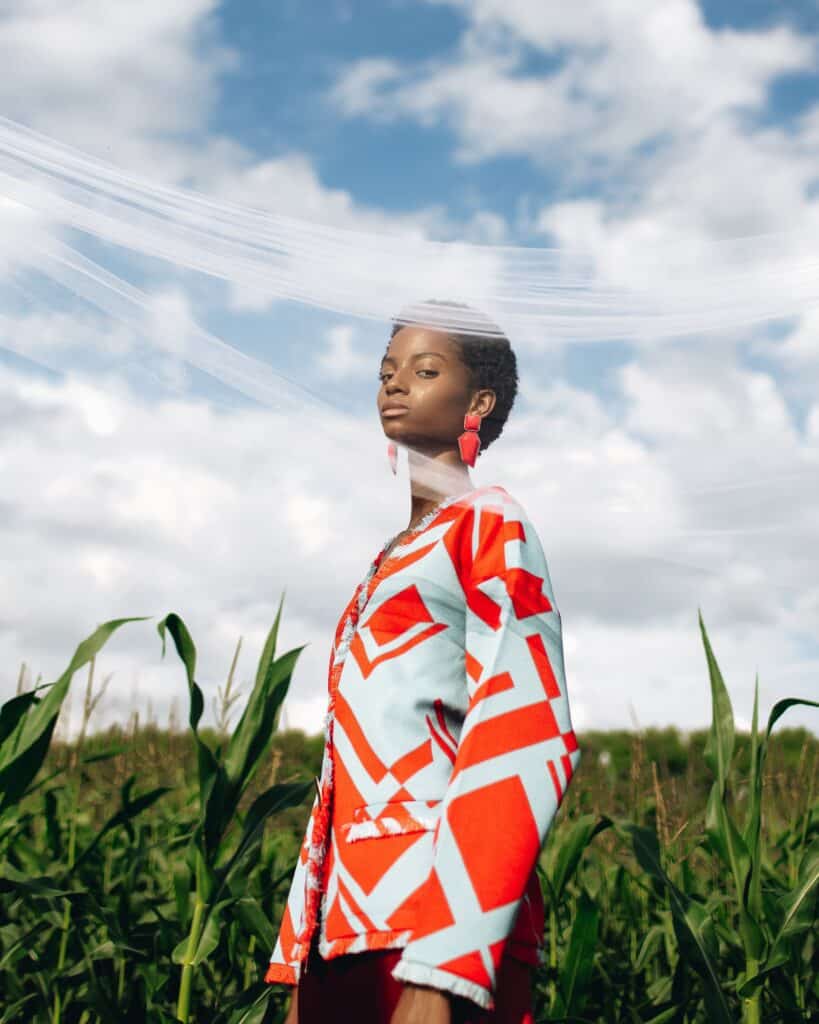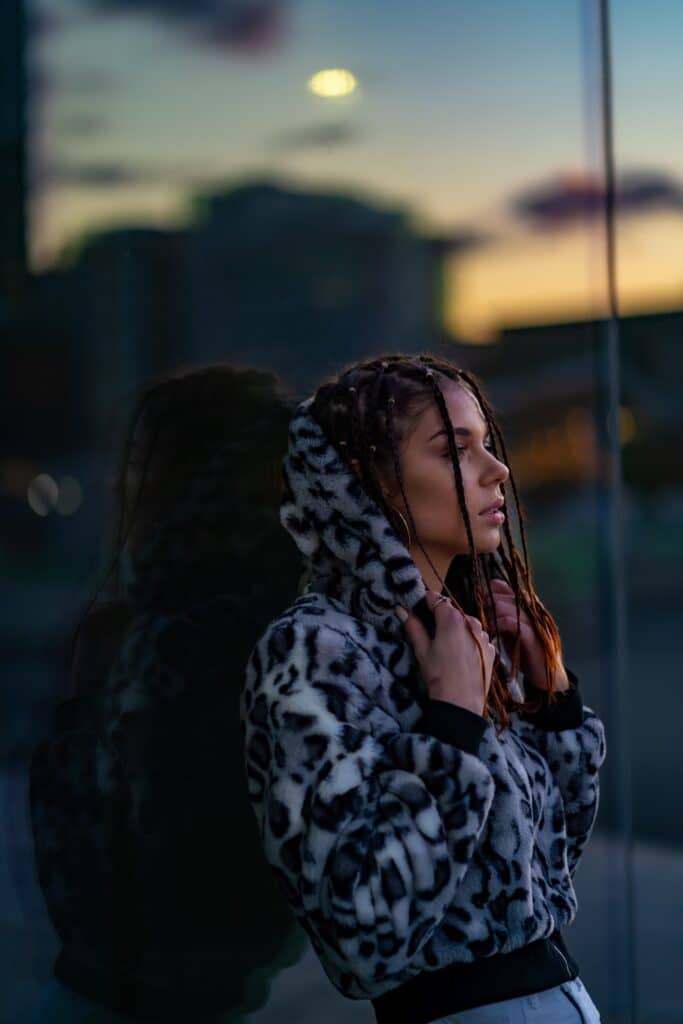20 Creative Editorial Photography Ideas For Your Next Photoshoot
Editorial Photography Ideas to Keep You Inspired
Building up ideas and gaining inspiration for your editorial photoshoots will keep you ahead of the game, build your confidence, and your portfolio. We hope our knowledge bank sparks new directions and creativity–we suggest taking notes on what resonates!
It’s easy to get stumped or overwhelmed by editorial photography, especially when so much exciting creative work is coming at you–that you can access 24/7 from your phone. You may ask yourself, how do I stay relevant? Original? It’s easy to feel uneasy starting out, or even continuing, in editorial photography (maybe you’ve stumbled into a sort of photographer’s version of writing block). That’s why we’re here, to lend you some ideas for new ways to tell your narrative or convey a creative concept.

Get to know the masters
If you don’t have a solid understanding of the editorial photography masters, or you could use a brush up, study up on the best of the best for inspiration. You may gain a lot of ideas from, say, Irvin Penn’s masterful use of studio photography, or Helmut Newton’s dramatic use of lighting and innovative posing.
Look to history
In addition to knowing the masters of editorial photography, having a broad understanding of the history of editorial photography, from fashion shoots to historical events to important creative movements, having more knowledge of the past will help you chart your future in editorial photography.
Embrace maximalism
What goes around comes around, and while minimalism has definitely been making a name for itself in editorial photography, why not try something with a more maximalist feel? Especially if it’s something new to you. Embrace the “more is more” ethos–props, people, any element that will exist in your photo frame, and see where it gets you.
Dip into abstraction
Abstraction, especially in editorial photography, can be quite the challenge, but can bring huge payoffs because of the dramatic flair and eye-catching visuals abstraction can yield. Incorporate the use of natural light, go black and white, go super close up or far away. There are plenty of ways to go abstract.
Be a designer
Of course design already plays a part in your photographic process, but thinking about it more deliberately may lend itself to new ideas. Take some time to consider design concepts like materiality and texture, foreground and background, form and pattern, even metaphor or illusion. Human minds gravitate to good design, so you’re already set up for success.
Bring in other artistic mediums
Consider expanding your post-production process beyond the computer. You may find experimenting with other media opens up a whole new world that could play into your editorial photo series. Illustration, collage, painting, even fiber arts are all worthwhile explorations to take.
Change up your equipment
This idea isn’t supposed to overwhelm you with big new costs or technical know-how. Consider even playing around with a disposable camera or instant film, borrowing a lens, backdrop or light from a friend, or scouring second-hand avenues for new equipment.
Gain inspiration elsewhere
A sure fire way to get unstuck or spark new ideas is to look beyond photography for inspiration. Especially mediums that lend themselves to your shoot, this can include set design, graphic design, even book design. Take cues from the layout, mood, anything that catches your eye.

Explore props
The world is your oyster when you start to think about props for your editorial photoshoot. Props require planning and research, as you’re going to want to be careful and be able to justify what you’re using, why, and where you’re placing it.
Go somewhere new
New locations will be great for your shoots, and the stimulus might help your creative juices flow better too. Find locations that are outside of your usual go-tos. Maybe you always shoot in a studio, try a park, an open field, an interesting public space. Shoot outdoors often? Head inside for a new view.
Flip the script
Subverting your editorial can be a psychological adventure for you and your viewer. Instead of pretty, go ugly, instead of dressed up, dress down. Go ironic, go comedic, go dark. Thinking outside of the box when it comes to your narrative can lead to new dynamic photos.

Collaboration with others
Expanding your network, meeting new people, being introduced to new methods, it’s hard to think of a con to collaborating with others, although the initial reach out and experience may be awkward. Don’t let that get in the way of all the fun and benefits to your career of striking up creative collaborations.
Incorporate movement
Whether you’re experimenting with a blur effect, or looking to simply convey movement in your scene, bringing in this active feature to your shooting can really change the mood and feel of your shot and challenge your photography in a great way. Consider incorporating dynamic colors to really make the movement pop.
Make the ask
Have you thought about a shoot or photo series you’d like to do but find yourself at a barrier? Think about how you could cross this barrier by asking for help, whether that be funding (ever considered applying for a grant?), calling in a favor, or tapping a friend or peer for advice. There’s no harm in asking.
Bring in real world issues
Has a current event or cause given you new energy or feelings? Maybe brought up old ones? Consider bringing this to your shoot. Even if it isn’t a literal depiction or commentary on an issue, you can convey how you feel in a variety of different ways.
Play with lighting
Lighting can be a powerful source in your editorial photography. Photograph at a different time of day than you’re used to, such as high noon. Or go for an absence of light–shoot at nighttime, or in a dark studio. Or, play around with artificial light–consider lighting your scene using a camera flash, new lighting set-ups, or even streetlights.
Don’t shy away from bad weather
Don’t immediately discount a turbulent or crummy weather day. While natural light and mellow conditions may make for an ideal shoot, you might want to play around with stormy weather, rain, wind. Even sweltering heat might play a useful part in your photographic narrative. Just make sure you’re prepared.
Challenge yourself
What’s one thing that you’ve read so far that you think you’ll never do? Or an idea you’ve had that you’ve shied away from? Challenge yourself to doing what you’re opposed to (within reason). Even if you don’t end up using the creative, you may spark other ideas or grow your confidence in what you just accomplished.
Change your perspective
Literally! Always shoot front on? Take a birds eye view or get on the ground. Try anything you haven’t tried before for a totally different look for your editorial. Changing your angle can have a profound effect on your editorial photography’s mood, tone, even story line.
Change up the mood of your shoot
Another way to find ideas is to identify what you haven’t done yet. Take a look at your past work and do an audit of sorts, is there a tone you typically set? A dominant color scheme or mood? Identify what you have done so you can try things you haven’t.
There are so many options when it comes to editorial photography. This list isn’t meant to further overwhelm you, so our tip? Just start somewhere. Maybe begin with what moved you the most, or an idea that is super low stakes. Wherever you are is a good place to start.